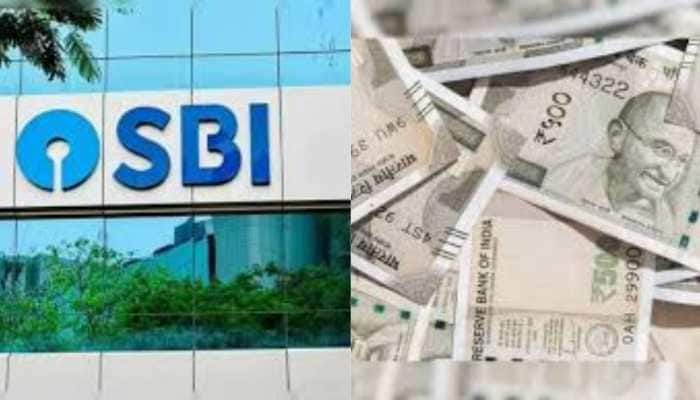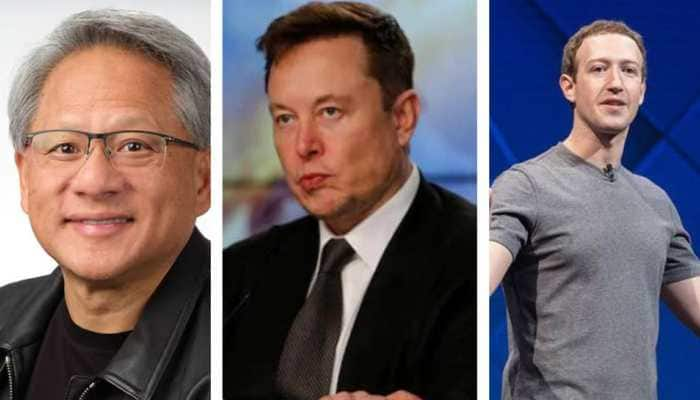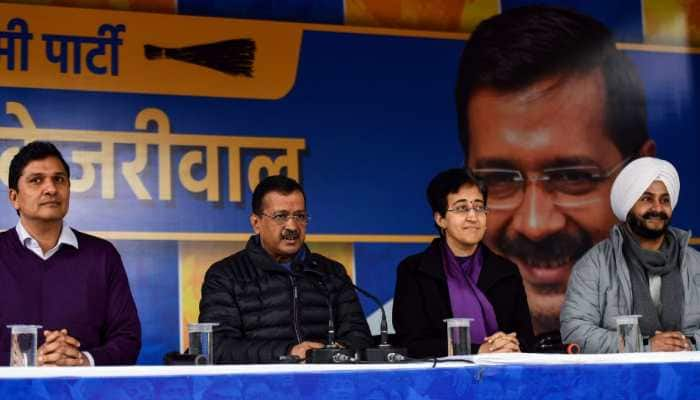Yearender 2018: From Kathua rape case to MeToo, major controversies India witnessed
Let us retrace our steps to all the major controversies that made the headlines.
Trending Photos
)
The year 2018 has been marked by many incidental events. The country witnessed a wave of protests, controversial remarks were made, allegations, accusations and slamming dotted the months as the year came to a close. Let us retrace our steps to all the major controversies that made the headlines:
1. Kathua gangrape and murder case: In January, an eight-year-old girl from a minority nomadic community was allegedly kidnapped, drugged, tortured, gangraped and eventually killed in Jammu and Kashmir's Kathua district. The incident triggered a national outrage followed by several controversies. The state police filed the main charge sheet against seven persons and a separate charge sheet against a juvenile in a court in Kathua.
Bharatiya Janata Party (BJP) leader Kavinder Gupta triggered a row after saying that the incident is a minor one and should not be given much importance. Two other BJP ministers in the state government, Lal Singh and Chander Prakash Ganga supported a local group, the Hindu Ekta Manch, which took out a rally with the national flag claiming the arrests to be a "targeted attack against Hindus". Lawyers too shouted slogans and caused obstruction of police personnel. They also tried blocking the road outside a court, where the charge sheets were filed, seeking CBI probe instead of the state police investigation.
Several political figures came out in support of the accused. The victim's father had moved the Supreme Court apprehending threat to the family, a friend and their lawyer Deepika Singh Rajawat.
2. Rafale deal: The Rafale fighter jets deal witnessed a controversy throughout 2018. The Congress alleged corruption by the Narendra Modi-led government in the procurement of the 36 Rafale fighter jets. The jets, which were for the IAF, were procured from French aerospace major Dassault Aviation and Congress called it a scam. Dassault made the partnership with industrialist Anil Ambani-led Reliance Defence and Congress alleged that this was done to benefit Ambani.
The deal was made a sensational issue by the Congress and several other political parties, including the CPI (M) and the AAP, which joint the relentless attack on the government while demanding explanation from the prime minister. The former French president Francois Hollande and current President Emmanuel Macron were too caught in the web and they had to give explanations.
As the year came to a close, the accusations intensified and the matter reached the doors of the Supreme Court. However, even after the observation of the apex court in the matter, Congress refused to accept it and went onto press several other accusations.
3. Sabarimala temple row: The Lord Ayyappa temple at Kerala’s Sabarimala town witnessed massive protests by devotees and Hindu groups since the September 28 Supreme Court verdict. The apex court lifted the ban on the entry of women of menstrual age into the shrine and ruled that women of all ages will be allowed to enter the temple to offer prayers. Traditionally, girls and women in the menstruating age group of 10-50 years were barred at the shrine.
The temple witnessed protests against the state government's decision to implement the SC’s verdict. Over a dozen women made unsuccessful bid to offer prayers. The BJP and the Congress-led UDF have been up in arms against the manner in which the Kerala government led by Pinarayi Vijayan has been 'trying to use the apex court verdict to dilute the traditions of the temple'.
The CPI, the key partner in the CPI-M led LDF, said there was an attempt to "politicise" the Supreme Court order on Sabarimala. BJP supporter Kollam Thulashi allegedly said that women on the banned age group should be ripped in half.
The protests led to violence in the area forcing the police to impose restrictions and prohibitory orders and arrest dozens of people. Till today, no woman in the 10-50 age groups has succeeded in offering prayers at the shrine.
4. Ram temple: The controversy over the construction of Ram temple at the disputed site in Ayodhya in Uttar Pradesh gained momentum in the last few months of 2018. The Supreme Court has fixed the Ram Janmabhoomi-Babri Masjid land dispute cases for the first week of January 2019. However, several leaders pressed the Narendra Modi government to bring in a law, ordinance or legislation for the construction of the temple. The right-wing groups have demanded that the Centre sidestep the courts and go ahead with the temple construction while the Opposition parties have accused the BJP of using the issue for political gains.
A Dharam Sabha, the biggest congregation of Ram bhakts, was convened by the Vishwa Hindu Parishad to discuss the way forward for temple construction. It witnessed seers stressing the need for construction of the temple at the earliest. A seer said that dates for the same will be announced early next year during Kumbh.
Shiv Sena chief Udhav Thakarey asked the Modi government to wake up from a 'Kumbhakarna-like slumber' and declare the date for its construction.
Former J&K chief minister Farooq Abdullah said that the BJP government is allegedly fooling the people by 'ignoring real issues and is instead fighting for the construction of the temple.
The Babri Masjid was, on December 6, 1992, razed to the ground allegedly by Hindu activists, claiming that the mosque was constructed after demolishing a Ram temple that originally stood there. The dispute has remained unresolved for more than 25 years now.
5. Hanuman caste row: In the penultimate month of 2018 a controversy was stirred on the caste of Lord Hanuman by several BJP leaders. The row was triggered when Uttar Pradesh Chief Minister Yogi Aditynath allegedly remarked that "Hanuman was a Dalit." The CM had to face a scathing attack as he was accused of dragging Lord Hanuman's caste for political gain for the BJP in the state. This remark of CM Adityanth gave rise to a series of caste remarks on Lord Hanuman by several BJP leaders.
National Commission for Scheduled Tribes (NCST) chairperson Nand Kumar Sai claimed Lord Hanuman was a tribal. Bahraich BJP MP Savitri Bai Phule claimed that Lord Hanuman was "a Dalit and a slave of 'manuwadi' people". Uttar Pradesh Religious Affairs Minister Laxmi Narayan Chaudhary said, "Jats are descendants of Lord Hanuman. Hanumanji was a Jat."
A Jain priest claimed Lord Hanuman was a Jain citing the Jain scriptures. He added that the deity was one of the 169 great persons identified in Jainism. The debate over Lord Hanuman continued as Uttar Pradesh's sports minister and former cricketer Chetan Chauhan has said that the Hindu deity was a sportsperson.
In an interesting twist to the debate over Lord Hanuman, BJP leader and MLC Bukkal Nawab said the deity was "actually a Muslim".
Hindu seers slammed the politicians saying they seem to have lost their "mental balance". BJP ally Shiv Sena said characters from the epic Ramayana better keep their caste certificates ready.
6. India MeToo movement: The MeToo movement hit India when Tanushree Dutta accused Nana Patekar of sexual misconduct while they were shooting for a 2008 film. A number of high-profile men from the Hindi film industry have been outed in this movement--Vikas Bahl, Alok Nath, Sajid Khan, Justin Das, Ganesh Acharya, Anu Malik, Kailash Kher, Suhel Seth, Rajat Kapoor. Artist Subodh Gupta and author Chetan Bhagat were also named.
Former editor-turned-politician MJ Akbar refuted a journalist's allegations of rape and released a statement claiming that they were in a “consensual relationship" which spanned over several months. A US-based journalist of Indian origin wrote in a blog piece alleging that she was raped by Akbar on several times more than two decades ago. Akbar resigned from the Union Council of Ministers on October 17 after his name cropped up. Multiple women accused him of alleged sexual harassment when he was the editor. He filed a criminal defamation case against another woman journalist who accused him of harassment.
A BJP MP accused women saying that they level allegations on men just for the sake of money.
7. Padmaavat movie controversy: The Sanjay Leela Bhansali film, Padmaavat (previously named Padmaavati), created controversy during its making as well as before its release. Several Rajput organisations claimed that the film distorted history and hurt their sentiments. A wave of protests flooded the country as the Karni Sena, several other Rajput groups and fringe groups demanded a ban on the film. They damaged film sets more than once even to the extent of assaulting the director and threatening the actress, Deepika Padukone.
The film did not release in four states - Rajasthan, Gujarat, Madhya Pradesh and Goa. Vehicles were damaged and burnt, shops were vandalised, violent protests spread to Rajasthan, Gujarat, Maharashtra, Bihar, Haryana and UP. Dozens of people were arrested.
Meanwhile, there was no end to politics over the film, with members of both Bharatiya Janata Party and Congress speaking against the screening of the movie. Congress leader Digvijaya Singh said that movies that hurt sentiments of any caste or religion should not be made, whereas BJP’s Subramanian Swamy said that there was no historical value of the movie.
8. Assam NRC row: The National Register of Citizens (NRC) is a register having names of the genuine Indian citizens residing in Assam. Assam had faced influx of people from Bangladesh since the early 20th century. The first draft of the NRC for Assam was published on the intervening night of December 31, 2017, and January 1, 2018.
The final draft NRC list was published on July 30 in which names of 40,70,707 people did not figure in the list. There was an uproar and a huge controversy in the state and throughout the country over the exclusion of 40 lakh people from the draft NRC. The Oppostion parties launched scathing attacks on the Centre. Congress leader and former Assam chief minister Tarun Gogoi claimed that the initiative to update the NRC was his "baby" and the BJP has failed to "nurse" it properly. The TMC accused the saffron party of creating communal divisions by updating NRC. West Bengal CM Mamata Banerjee said the "Indian citizens have become refugees in their own land". She alleged the NRC was an "attempt to evict the Bengalis from Assam".
9. RBI Governor vs Centre: Urjit Patel, who initially appeared to have toed the government line on issues like demonetisation, had clashed with the Finance Ministry over issues of liquidity, reserves of the central bank and lending norms. The face-off led to the government invoking a never-used-before provision of the RBI Act to bring the governor to the negotiating table on these issues and eventually Patel resigned.
The relationship soured since late October, after the finance ministry mandarins started consultations under the never-before-used Section 7 of the RBI Act which empowers government to direct the central bank to undertake certain policy measures in public interest. The government primarily wanted the RBI to help the struggling non-bank lenders and MSMEs get some liquidity support, liberalise the prompt corrective action framework on 11 of the state-run banks and undertake other steps which will help push growth.
The government also wanted the RBI to part with a large portion of it Rs 9.6 trillion of its cash surplus, which the central bank has been sternly opposing. The frictions came to light through a public speech by deputy governor Viral Acharya, wherein he warned of investors' wrath if the RBI's autonomy is compromised.
10. Tripura CM Biplab Deb's controversial statements: Tripura Chief Minister Biplab Kumar Deb's 'quotable quotes' created nation-wide debates and courted controversy throughout this year. The CM drew criticism after he claimed that internet and satellite are not something new but existed since the Mahabharata era. He stirred a fresh controversy saying that former Miss World Diana Hayden does not represent Indian women, but Aishwarya Rai does.
He also said that civil engineers are better suited for civil services as compared to mechanical engineers. The CM also asked the educated youth to set up paan shops instead of running after political parties to get government jobs. He also asked youth to explore a career in the dairy field and keep cows.
He also said that Rabindranath Tagore had given away his Noble prize to protest against the British. However, Tagore had repudiated his Knighthood in protest against the Jalianwalla Bagh massacre in 1919. His latest gaffe was when he said that ducks raise the Oxygen level in water bodies when they swim. The Chief Minister said ducks recycle water and their swimming increases Oxygen levels in water bodies which is very beneficial for fishes.
Stay informed on all the latest news, real-time breaking news updates, and follow all the important headlines in india news and world News on Zee News.
Live Tv







)
)
)
)
)
)
)
)
)
)
